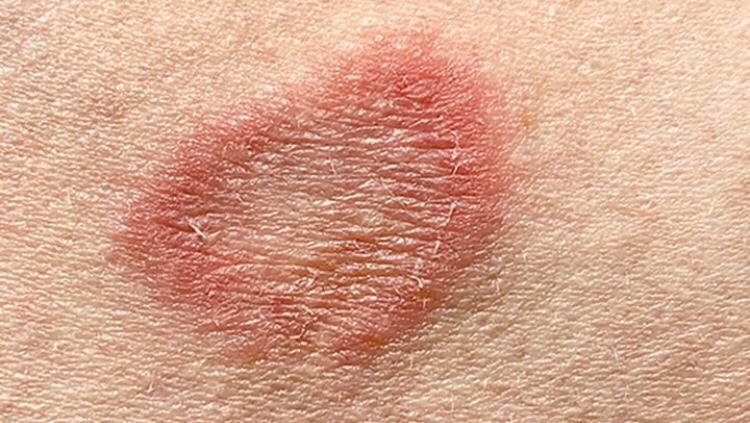A treatment-resistant, highly contagious form of the skin infection tinea, better known as ringworm, has been reported in the U.S. for the first time, the Centers for Disease Control and Prevention said Thursday. The cases were identified in two patients in New York City.
Ringworm is a common, superficial infection of the skin, hair or nails that is very contagious. It is caused by fungi and is typically treated with antifungal medications, but over the past decade, a treatment-resistant strain has emerged in South Asia. The CDC refers to that increase as “an epidemic.” Those cases are specifically referred to as Tinea indotineae infections.
These infections, the CDC said, are characterized by “widespread, inflamed, pruritic plaques,” or rashes with lesions. The rashes can appear on the body, the thigh, the crease of the thigh, the pubic region and the face. This version of the infection does not respond to terbinafine, the front-line medication used to treat most tinea cases.
Any content which is considered unsuitable, unlawful, or offensive, includes personal details, advertises or promotes products, services or websites, or repeats previous comments will be removed.
User comments posted on this website are solely the views and opinions of the comment writer and are not a representation of or reflection of the opinions of TNN or its staff.
TNN reserves the right to remove, edit or censor any comments.
TNN accepts no liability and will not be held accountable for the comments made by users.

